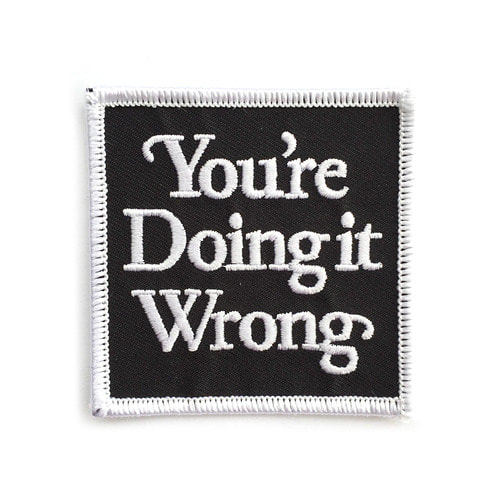|
Technologist, including engineers, are often unfairly labeled and stereotyped as lacking soft skills when it comes to interacting with other people. Words like ‘quirky’, ‘introverted’ and ‘rambling’ are often used to describe technologists and how they interact with others. After more than 15 years in the medical device field working side by side with my engineering colleagues I’m convinced these adjectives unfairly characterize many technologists, yet the use of these descriptions continues to permeate conversations rather consistently. Whether you’re a technologist or not, the simple truth is we all could use a little help in upgrading ourselves professionally. Continual improvement is a cornerstone for a good professional and so is proper business etiquette. If you’re looking for a way to improve how you show up, including how those around you perceive you, consider the following nine steps to boost your business etiquette: 1. KISS (Keep It Simple, Stupid) A wonderful acronym to say the least. Those of us who like to tinker and develop products have a tendency to overcomplicate the outcome, as well as our communication. When we ‘over engineer’ our ideas, products or conversations it shows a lack of understanding for the true need as well as our ability to hold back personal interest before company needs. Good business etiquette in this area is when we build awareness around the importance of keeping things simple which focuses on driving greater realized value for the end user. “Simplicity is the ultimate sophistication.” – Leonardo Da Vinci 2. Understand the Big Picture Technologist can be stereotyped as not understanding the company’s bigger picture and its goals as a business. Its important engineers slow down to take the time to understand how their role impacts the business, especially how their decisions impact things downstream. When we understand the big picture we’re able to remove ourselves from our preconceived notions and think like business professionals, not just technology developers. This becomes crucial when we’re making decisions early in the product development process on product needs versus how that need supports the company’s mission and the needs within the marketplace. Just because something is a great feat of engineering awe doesn’t mean it is necesary for the product, the company and or the customer. 3. Be Proactive With Your Communication Engineers live a life of projects. They go from one project to another in their day to day work and as such they’re often embroiled in deadlines. There’s nothing more frustrating to have someone on your team report the day of the deadline that they are going to miss it. That’s unacceptable. When we have good business etiquette we respect the other people on the team by communicating proactively so the team is prepared, especially in a situation where we may be missing a deadline. Don’t wait to communicate. 4. Understand Your Cross Functional Colleagues It’s poor business etiquette for engineers to only stay in their lane and not get to know, interact with, or understand their colleagues in non-technical roles. Why is this the case? Read #2 on this list. When we don’t understand the bigger picture of the business, how it runs and operates, how decisions are made and why they’re made, our ability to be a productive employee is reduced to chance. Ever seen someone come up with an idea which they claim to be amazing or revolutionary to be shot down shortly thereafter from another person in the company? More often than not that idea infringed on #1 or #2 within this list. For example, if you make a suggestion to add a feature to an existing product without taking into consideration the cost to manufacture it or if the companies sales people can actually sell it to their customers you’ve singlehandedly shown that you can come up with ideas which have little merit in their ability to be executed. 5. Good Enough Vs. Perfect Confucius said, “Better a diamond with a flaw than a pebble without.” When we chase perfection we often find ourselves on a never ending journey where we’re busy as can be without accomplishing much. Its important engineers build awareness around the idea that nothing is ever finished therefore it isn’t settling if perfection isn’t achieve. We should expect it and build product updates into our process down the road. Apple, Inc. does this all the time with their new releases and they still have people lining up around the block to buy their products, regardless of the initial glitches and bugs associated. 6. Handshakes and Eye Contact Those of us in technical fields can at times get a bad rap for not being social butterflies who know how to engage with others. Let’s buck the stereotype! Good business etiquette tells us it is important to give a firm handshake upon initial interaction with another person. In fact, its common to hear from leaders that a poor handshake can be the difference in someone getting a job. The limp wrist, fish handshake belongs nowhere in business. Same can be said about eye contact. Be intentional with your eye contact when speaking with someone in person. Looking at the floor or down at your lap gives others the impression you aren’t confident in yourself. 7. Ditch the Cell Phone Your cell phone needs to stay in your pocket at all times when you are engaged with others, especially in a business setting, unless you are using it as part of the discussion. If you’re in a conversation, including a group conversation, and you’re simultaneously thumbing through your social media you’re giving off a sign that what other people have to say isn’t important. Put the phone away! Your digital friends, who you’ll never meet anyways, won’t even notice you’re not there to like their cat memes. FOMO no mo. 8. First Impressions Are Actually Important This goes hand-in-hand, pun intended, with #6. The way we show up with other people, especially during a first impression can make or break someone’s perception of you. Greet people, shake their hand, learn their name. Make an effort to engage with them. Be polite and considerate. Lastly, be groomed! If you’re appearance is disheveled or unbecoming of a professional that’s how you’ll be treated. Most technologists make a healthy living in their careers, it’s important you act like it, at least upon first impressions. 9. Respecting Others Lack of Technical Knowledge When you’re talking to a layperson, a non-engineer, do your best to use simple, straightforward language. People who aren’t engineers already are often times giving you the benefit of the doubt that you’re smart. (this is the one time when a stereotype works in your favor) As such, you don’t need to impress people with your technical prowess by using terminology and theoretical concepts which fly over the head of the other person in the conversation. Be mindful of who you are talking to and adjust accordingly as this will ensure the discussion is fruitful for both parties. If the other party wants more information they’ll signal to you to get into the weeds, then its go time! When we’re demonstrating good business etiquette we simultaneously show that we respect others while respecting ourselves. Take the time to build awareness in this area of your career, it will pay dividends in spades over the long haul.
0 Comments
Monday Quickie - You're Doing It Wrong7/22/2019 “They gave us world class, but all we needed was the basics.”
Last week I was speaking with a VP of Quality at a small medical device company at which point he politely complained to me about a recent experience he had with a consultant their company brought onboard. The company was implementing a new online quality management system (QMS) and was utilizing this consultant to get it up and running. The VP shared with me his irritation about how the consultant came in and took on the project as an expert in the field. The consultant had done many QMS implementations prior and came with good recommendations of his work. As the conversation went on the VP share further irritation about his experience working with the consultant. He brought in an expert to do a job that was rather straight forward yet that’s not what the company got in the end. Unfortunately, the consultant failed to understand one of the most important aspects of his job – understand the needs of the customer and implement accordingly. “We’re a small company, we don’t need all the bells and whistles right now [from a QMS system]. We just need a system that keeps us in compliance while making things easier from a process flow standpoint.” The VP was sharing with me a painful experience he was having as a result of someone doing work for him and not understanding what was actually needed in the moment to be successful on that project. Sometimes what’s needed is the basics, not world class. The key is knowing when each of these is appropriate. All to often we show up to a project or work with the idea we’re going to dress up the proverbial pig ready for a fancy night out on the town. This pig of ours is going to look amazing, amazing because of the work we did to get it there. However, we end up missing the mark because we don’t bother to ask the right questions along the way. If we had bothered to ask the right questions to understand what was truly needed by the company and the key stakeholders we may find out the ‘pig’ just needs a new pair of shoes, not a whole wardrobe change. Here’s how this played out in the scenario above with my client and VP…
Here’s the rub on the situation. If the consultant had bothered to ask the vital question of their client upfront “What does ‘success’ looks like at the end of the project?” he would have found out the client needed a practical QMS which met the basic needs of their product and regulatory requirements yet did not need a lot of the fancy bells and whistles larger companies utilize with their QMS. Basically, this small medical device company needed a QMS that was straightforward, basic yet allowed them to upgrade their company to meet the regulatory requirements for their product. The client wanted a no frills, basic system yet what they got was a world class system they’ll probably never fully utilize. Key Takeaway: Don’t assume your work or project requires you to put forth world class service. Sometimes ‘good enough’ is all that’s needed. Knowing the different between ‘good enough’ and world class work outputs is a vital skill to develop and implement in your career. Action Item: Before you begin your next project at work think to yourself “what’s really needed here? The basics or something more?”. Then actually go ask the key stakeholder in charge. Doing this shows an ability to think big picture with an appreciation for what’s best for the company, not what’s best to make you look good as a result of the work you can do. About the AuthorTravis Smith is the founder and managing director of Square-1 Engineering, a medical device consulting firm, providing end to end engineering and compliance services. He successfully served the life sciences marketplace in SoCal for over 15 years and has been recognized as a ‘40 Under 40’ honoree by the Greater Irvine Chamber of Commerce as a top leader in Orange County, CA. Categories
All
Archives
April 2024
|
Visit Square-1's
|
|




 RSS Feed
RSS Feed


